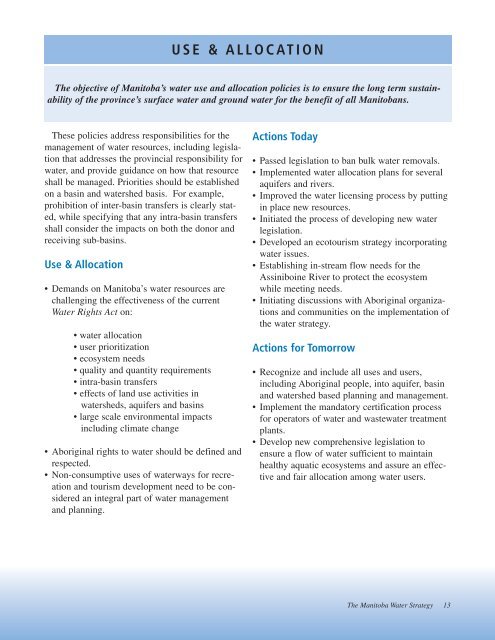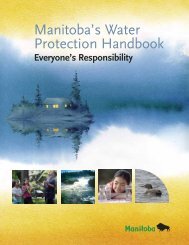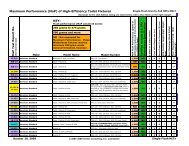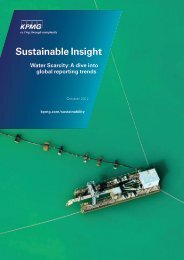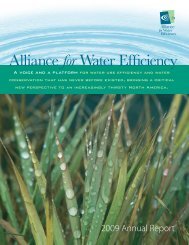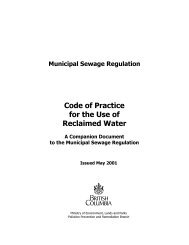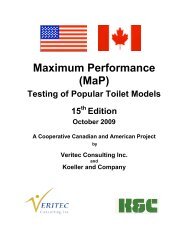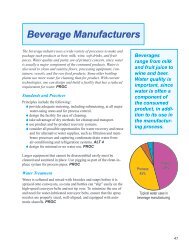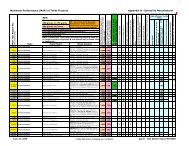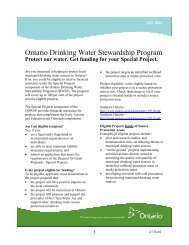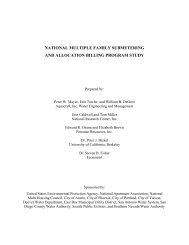The Manitoba Water Strategy - Government of Manitoba
The Manitoba Water Strategy - Government of Manitoba
The Manitoba Water Strategy - Government of Manitoba
You also want an ePaper? Increase the reach of your titles
YUMPU automatically turns print PDFs into web optimized ePapers that Google loves.
USE & ALLOCATION<br />
<strong>The</strong> objective <strong>of</strong> <strong>Manitoba</strong>’s water use and allocation policies is to ensure the long term sustainability<br />
<strong>of</strong> the province’s surface water and ground water for the benefit <strong>of</strong> all <strong>Manitoba</strong>ns.<br />
<strong>The</strong>se policies address responsibilities for the<br />
management <strong>of</strong> water resources, including legislation<br />
that addresses the provincial responsibility for<br />
water, and provide guidance on how that resource<br />
shall be managed. Priorities should be established<br />
on a basin and watershed basis. For example,<br />
prohibition <strong>of</strong> inter-basin transfers is clearly stated,<br />
while specifying that any intra-basin transfers<br />
shall consider the impacts on both the donor and<br />
receiving sub-basins.<br />
Use & Allocation<br />
• Demands on <strong>Manitoba</strong>’s water resources are<br />
challenging the effectiveness <strong>of</strong> the current<br />
<strong>Water</strong> Rights Act on:<br />
• water allocation<br />
• user prioritization<br />
• ecosystem needs<br />
• quality and quantity requirements<br />
• intra-basin transfers<br />
• effects <strong>of</strong> land use activities in<br />
watersheds, aquifers and basins<br />
• large scale environmental impacts<br />
including climate change<br />
• Aboriginal rights to water should be defined and<br />
respected.<br />
• Non-consumptive uses <strong>of</strong> waterways for recreation<br />
and tourism development need to be considered<br />
an integral part <strong>of</strong> water management<br />
and planning.<br />
Actions Today<br />
• Passed legislation to ban bulk water removals.<br />
• Implemented water allocation plans for several<br />
aquifers and rivers.<br />
• Improved the water licensing process by putting<br />
in place new resources.<br />
• Initiated the process <strong>of</strong> developing new water<br />
legislation.<br />
• Developed an ecotourism strategy incorporating<br />
water issues.<br />
• Establishing in-stream flow needs for the<br />
Assiniboine River to protect the ecosystem<br />
while meeting needs.<br />
• Initiating discussions with Aboriginal organizations<br />
and communities on the implementation <strong>of</strong><br />
the water strategy.<br />
Actions for Tomorrow<br />
• Recognize and include all uses and users,<br />
including Aboriginal people, into aquifer, basin<br />
and watershed based planning and management.<br />
• Implement the mandatory certification process<br />
for operators <strong>of</strong> water and wastewater treatment<br />
plants.<br />
• Develop new comprehensive legislation to<br />
ensure a flow <strong>of</strong> water sufficient to maintain<br />
healthy aquatic ecosystems and assure an effective<br />
and fair allocation among water users.<br />
<strong>The</strong> <strong>Manitoba</strong> <strong>Water</strong> <strong>Strategy</strong><br />
13


